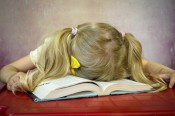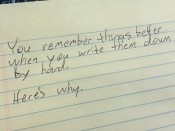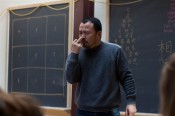 Roadmap to Literacy Books & Courses
Roadmap to Literacy Books & Courses Caring for All Stages of Life
Caring for All Stages of Life Apply Today: New Cohort Starts Nov. 2025
Apply Today: New Cohort Starts Nov. 2025 Full-Time Teacher Education
Full-Time Teacher Education Bringing Love to Learning for a Lifetime
Bringing Love to Learning for a Lifetime Summer Programs - Culminating Class Trips
Summer Programs - Culminating Class Trips Everything a Teacher Needs
Everything a Teacher Needs Space speaks. Its language is movement.
Space speaks. Its language is movement. Bay Area Teacher Training
Bay Area Teacher Training Train to Teach in Seattle
Train to Teach in Seattle Quality Education in the Heartland
Quality Education in the Heartland Middle School Science With Roberto Trostli
Middle School Science With Roberto Trostli Flexible preparation for your new grade
Flexible preparation for your new grade Association for a Healing Education
Association for a Healing Education Jamie York Books, Resources, Workshops
Jamie York Books, Resources, Workshops Waldorf-inspired Homeschool Curriculum
Waldorf-inspired Homeschool Curriculum ~ Ensoul Your World With Color ~
~ Ensoul Your World With Color ~ The Journey is Everything
The Journey is Everything Transforming Voices Worldwide
Transforming Voices Worldwide Great books for Waldorf Teachers & Families
Great books for Waldorf Teachers & Families
 Immersive Academics and Arts
Immersive Academics and Arts Waldorf Training in Australia
Waldorf Training in Australia
Would you like to become a sponsor?
Waldorf News
This is what reading is like when you have dyslexia. And as a dyslexic, I know.
May 10, 2016
Hello, world. My name is Alle. I'm a writer and an editor, and I'm dyslexic. When people find out that I have dyslexia, the first question they ask is always, "What is that LIKE?" And up until now, I've never had an answer for that. I've always been dyslexic; how do you explain what the world looks like when you have nothing to compare it to? I usually fall back on explaining what it IS. My usual spiel: dyslexia is a learning disability that generally involves problems reading, writing, spelling, and pronouncing words, as well as understanding the things you read. It's a cognitive difference, not a deficiency in intelligence. I was diagnosed when I was five; my dyslexia was (and remains) in the moderate-to-severe range. As for what it's like, dyslexia is kind of like "The Matrix" — you can't be told what it is... That just got easier to do — at least a little. Victor Widell (no relation to Taylor, I assume) created a dyslexia simulator on his blog to show people who don't have the "disorder" what reading is like for people who do... More »

Homework is wrecking our kids: The research is clear, let’s ban elementary homework
May 1, 2016
“There is no evidence that any amount of homework improves the academic performance of elementary students.” This statement, by homework research guru Harris Cooper, of Duke University, is startling to hear, no matter which side of the homework debate you’re on. Can it be true that the hours of lost playtime, power struggles and tears are all for naught? That millions of families go through a nightly ritual that doesn’t help? Homework is such an accepted practice, it’s hard for most adults to even question its value. When you look at the facts, however, here’s what you find: Homework has benefits, but its benefits are age dependent. For elementary-aged children, research suggests that studying in class gets superior learning results, while extra schoolwork at home is just . . . extra work. Even in middle school, the relationship between homework and academic success is minimal at best. By the time kids reach high school, homework provides academic benefit, but only in moderation. More than two hours per night is the limit. After that amount, the benefits taper off. “The research is very clear,” agrees Etta Kralovec, education professor at the University of Arizona. “There’s no benefit at the elementary school level.” More »

Let the Games Begin!
April 25, 2016
The Olympic torch was just lit in Greece. It will now begin its journey around the world to arrive just in time for the Summer Olympics in Brazil. It is just over thirty years ago that the fire of this ageless impulse ignited the imaginations of Thom Schaefer and Jaimen McMillan to develop a version of a Greek Festival for 5th grade children. These educators were searching to create a bridge from childhood play to adolescent athletics. They were inspired by the imagination given by the philosopher Rudolf Steiner that fifth grade children are “little Greeks.” Together they designed this unique, non-competitive model that fosters cooperation without compromising the quality of movement of the basic five Greek disciplines. More »

Attention, students: Put your laptops away
April 18, 2016
As laptops become smaller and more ubiquitous, and with the advent of tablets, the idea of taking notes by hand just seems old-fashioned to many students today. Typing your notes is faster — which comes in handy when there's a lot of information to take down. But it turns out there are still advantages to doing things the old-fashioned way. For one thing, research shows that laptops and tablets have a tendency to be distracting — it's so easy to click over to Facebook in that dull lecture. And a study has shown that the fact that you have to be slower when you take notes by hand is what makes it more useful in the long run. More »

Chinese Thought
April 10, 2016
Pioneering Waldorf teacher and poet Ningyuan Yu recently taught an elective block in Chinese History and Philosophy – a vast topic for just one block! Students experienced aspects of Chinese culture through movement, song, art, poetry, mapping and puzzles. The difference between Chinese thinking and American thinking, says Ning, can be felt in simple yet profound elements of daily life, such as the way parts of speech are ordered in a sentence or the use of numbers in decision-making. More »
 Recent Jobs
Recent Jobs
View more jobs »
 Newsletter Archive
Newsletter Archive
 Join the Mailing List!
Join the Mailing List!
Stay Connected…
Each week receive the Waldorf News Weekly Update, full of news, events, and more. Keep abreast of what's happening with Waldorf education.
 RSS Feeds
RSS Feeds